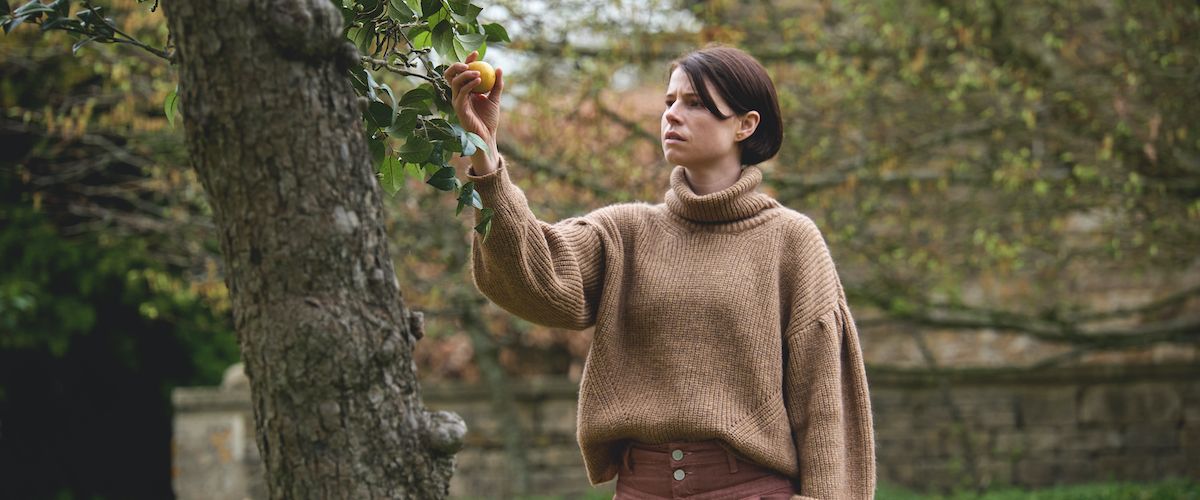By Alice Clarke, Third Year, History
Next to his directorial debut Ex Machina (2014), and subsequent outing Annihilation (2018), Alex Garland’s latest film Men (2022), unfortunately, falls short. A very obvious swipe at the patriarchy, Men is a film steeped in rich visuals and perhaps slightly less rich metaphors. Though there is much to gain from Garland’s modern folk horror, ultimately, it is a film which thinks it says more than it does.
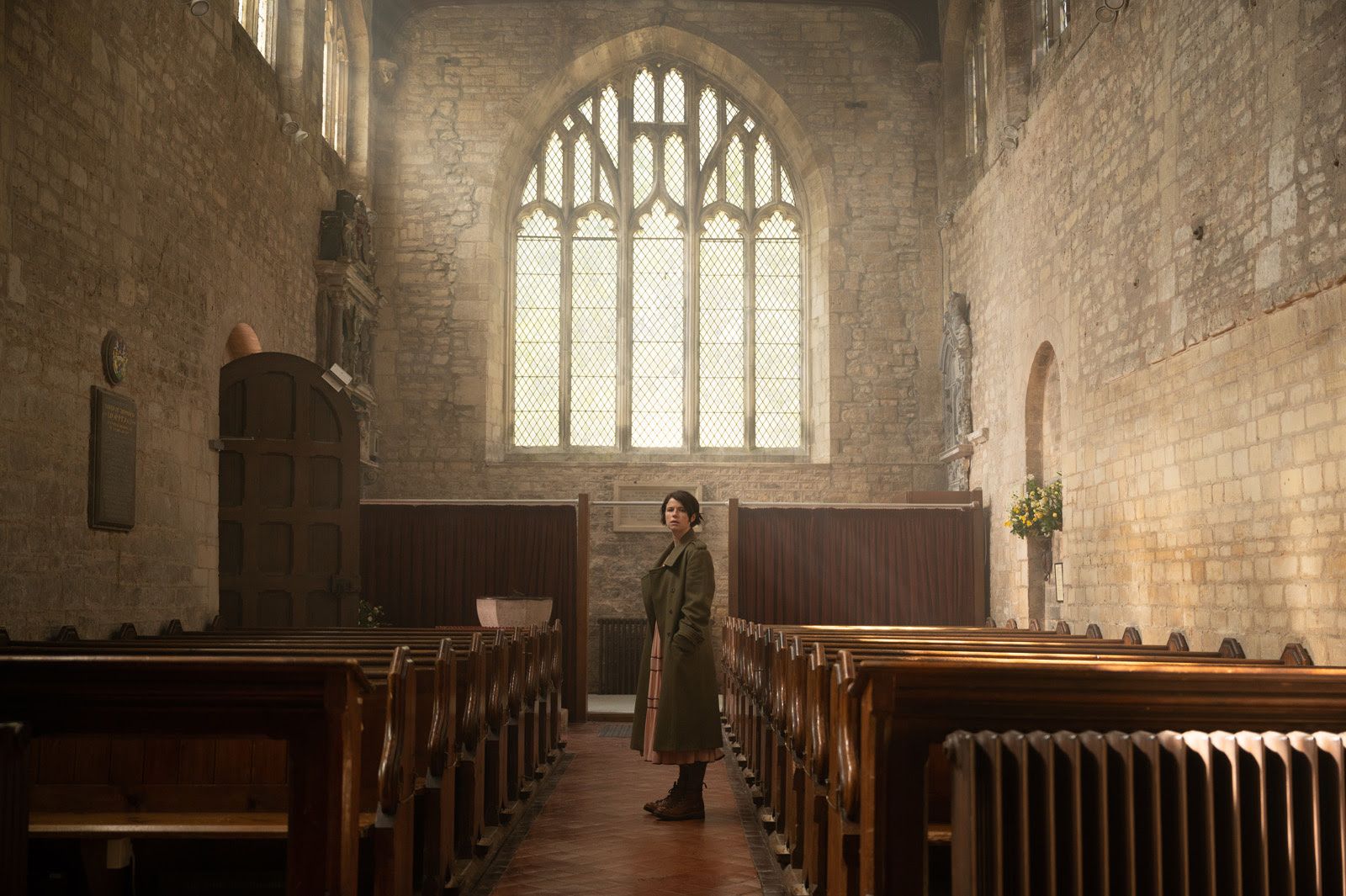
The film follows Harper (Jessie Buckley), a woman who we learn has been widowed following her husband’s apparent suicide. However, Harper’s backstory is more complex and sets a precedent for the rest of the film.
The audience learns through flashbacks that her husband was abusive and just moments prior to his death, Harper asserts her intention to divorce him. Following this trauma, Harper escapes to the English countryside, where the unravelling events of the film begin.
It is important to establish here that every male character in Men, besides Harper’s ex-husband, is played by the admittedly amazing Rory Kinnear. We meet the first iteration of Kinnear in Geoffrey, the owner of the gorgeous and whimsical country house Harper rents during her doomed break in rural bliss. Kinnear’s Geoffrey is a slightly unnerving but ultimately harmless archetypal posh Englishman, complete with ruddy cheeks, toffy accent and countryside attire.
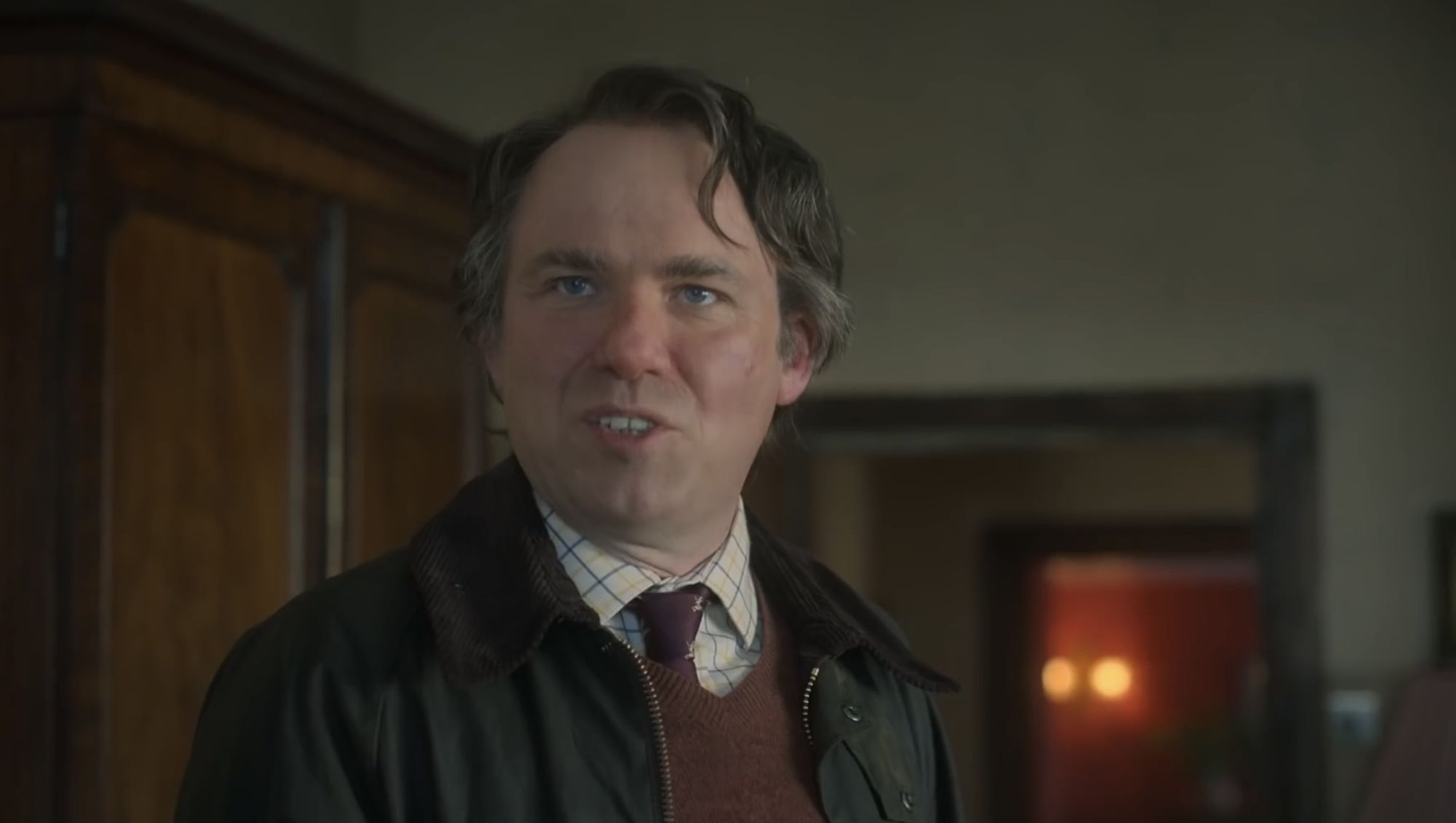
On the phone with her friend, Harper describes the host as “a very specific type” of man. Indeed, all of the men Harper meets in the course of this film are their own ‘type’. Kinnear transforms into characters ranging from a slimy and insensitive vicar, a patronising policeman, a stroppy schoolboy and a naked stalker.
It soon becomes clear that Harper is not going to have the relaxing break she was seeking. Tormented by flashbacks of her ex-husband’s death, each man she comes across causes her varying levels of discomfort.
She sees a naked man in her garden, having followed her from an earlier woodland walk who is arrested but subsequently released. The vicar, on sharing her past trauma, suggests the is to blame for her ex-husband's death, accusing her of ‘provoking’ him. The schoolboy who asks her to play hide-and-seek, eerily still baring a rather earnest incarnation of Rory Kinnear’s face, calls her a b*tch.
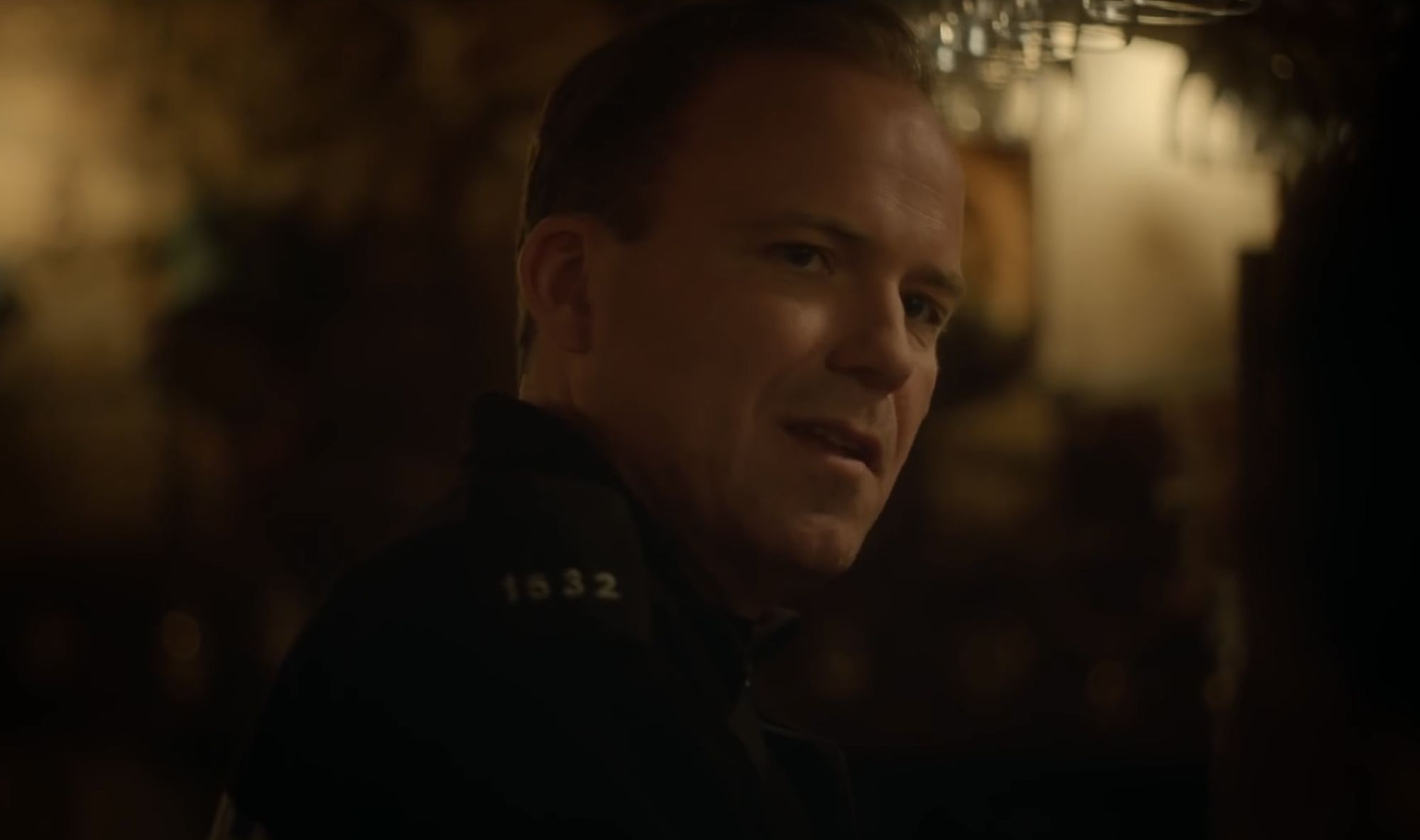
Without spoiling the specifics and later events of the film, Men shifts from a slow-burn folk-horror to a Cronenberg-style body horror film in the last half-hour. This last third was slightly reminiscent of Darren Aronofsky’s Mother! (2017) and I think the film itself will divide audiences just as much.
The message and metaphors within Men are not subtle; they are not open to interpretation. Simply, Garland attempts a gendered exploration of toxic masculinity, the patriarchy and ‘menkind’ more generally, however, it fails to delve any deeper than home truths we are already aware of.
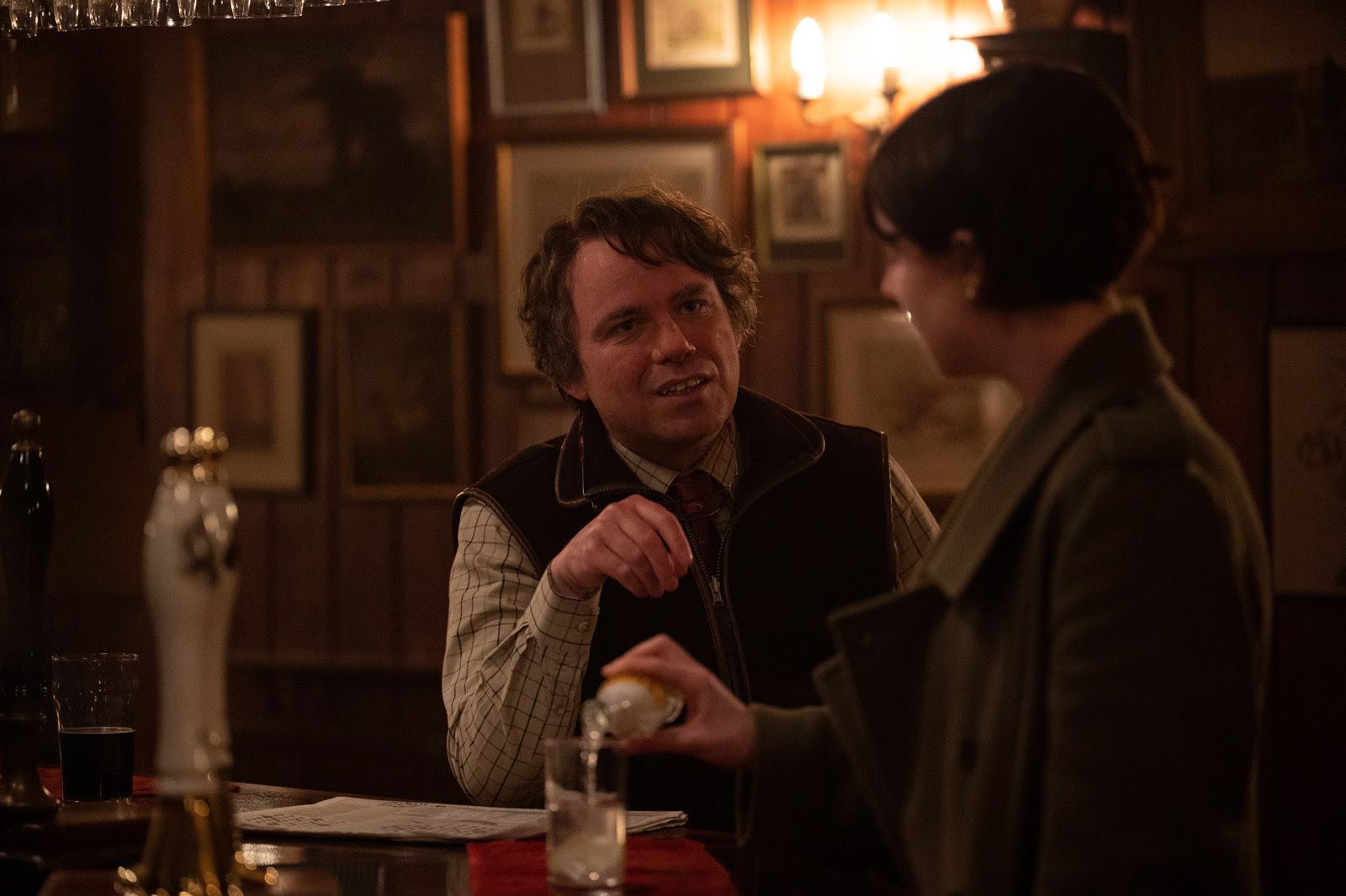
Utilising Rory Kinnear as the face of all the men in this film is a dramatic device which tells the audience something about Harper's experience of men or men within society full stop. However, Garland does not go any deeper or any more specific than this, despite laying the promising groundwork. The ‘something’ is little more than ‘men can be bad’.
Men is full of wasted potential, given that it possesses plenty of opportunities to go deeper and a compelling premise. Thus, it is frustrating that the film does not satisfy expectations. There is plenty of appetite and precedent for films, especially within the horror genre, which explores the very real horrors of the patriarchy.
Garland’s Men fumbles with this potential, creating a film that comes across as facile and, towards the end, self-congratulatory.
Featured Image: IMDB
How did you feel about Alex Garland's latest film, Men?

